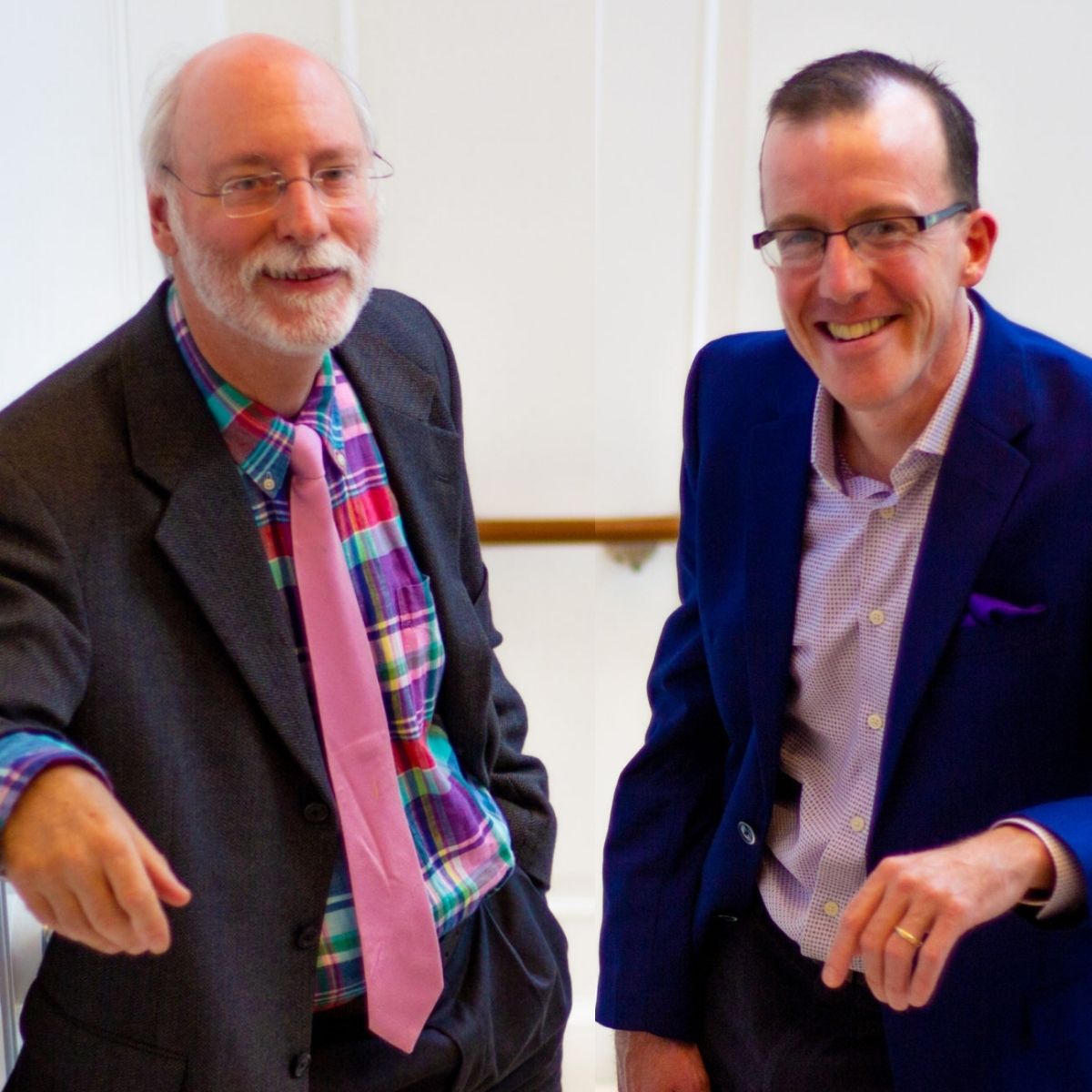The goal of every conversation should be to join with your child, to lovingly and respectfully unite in collaboration. Words have the remarkable power to weave a durable and warm tapestry of connection. The opening words of a conversation, formulated with respect, empathy, and openness, place you both on the path of cooperative, joyful togetherness. Armed with mere words you also have the potential to easily position yourself as the enemy, your children focusing everything on defending themselves, living a life that becomes a battlefield.
I’m Noticing …
“I’m noticing your friend’s face while you are doing that.”
“I’m noticing that you are taking out a lot of toys.”
“I’m noticing that your cup is very close to the edge.”
“I’m noticing that your body is more and more tense.”
Beginning sentences this way positions the conversation as a respectful, kind, and empowering collaboration. When you include your child in something you notice that is beyond their attentional line of sight you are opening their perspective and inviting them to take the lead in moving forward. It is the least intrusive step of communication.
I’m Wondering …
“I’m wondering what your friend is feeling right now.”
“I’m wondering how you will feel when it’s time to clean up.”
“I’m wondering what might happen if the table gets bumped.”
“I’m wondering if you are still enjoying this game.”
These words, when offered authentically, invite your child to take the next step deeper down that path. You simply wonder, with no agenda or commitment to a “right” outcome. Your position of curiosity creates a seeker within your child. It invites awareness and critical thinking. Wondering is more than a communication tool – it is a philosophical approach to life. Try it. It’s a game changer.
“Be careful!”
This is a phrase that serves the purpose of releasing some of your own anxiety (and positioning yourself to be “right” when they get hurt and you get to say, “I told you to be careful!”) but is utterly and completely useless to a child. When my own fear tries to jump out and grab my children through that phrase I try to shift it to “I’m noticing/I’m wondering” instead and then trust my children to make their own choices and accept the natural consequences. For example: “I’m noticing that this hill is quite steep and rocky. I’m wondering how you think we could safely move down it?” Then let him be with his own choice.
“No! Don’t X.”
You manifest what you focus on. If you say, “Don’t jump in the puddles,” you create an image of puddle jumping in your child’s mind and you pretty much guarantee puddle jumping as the desperate fixation for the foreseeable future (by the way, let your children jump in puddles!). Flipping negatives to positives will plant the image you do want in your child’s mind. For example, “Use walking feet, “ instead of, “Don’t run!,” and, “Use a quiet voice,” instead of, “Don’t yell.” Your child’s visual mind will grab hold of the root of your sentence so replace “run” with “walk” and “yell” with “quiet.” The next level would be to position your child to see the whole context and learn how to make those calls on his own with I’m noticing/I’m wondering.
“I’m noticing everyone is using a very quiet voice so they can focus on reading their books. I’m wondering what sounds you prefer while you are reading. Okay, so we’ll use a quiet voice in the library. If you need to get your noise out, let me know and we can go outside together.”
“You’re lying.”
It is developmentally appropriate for children to lie, though they don’t experience it in the same way we adults experience the act of lying. From a little one’s perspective, they are using their imagination to create the reality they want through their words and actions (pretend play) on top of a natural desire to please you. Children cannot even fully tell the difference between pretend and real until about the age of 4 and I would argue that the developmental forces at play in these high pressure scenarios continue to be in effect even years beyond that.
The issue of lying is one that is really created by the parent, not the child, and it can become a beast. If you are parenting as an opponent, as is the mainstream way, lying easily becomes a test through entrapment that they are set up to fail and guilt becomes a tool for manipulation. Then once “liar” is a characteristic introduced into their personality, they grow themselves around that trait, continuing to evolve into the very thing you feared. Don’t ask them questions you already know the answer to and focus on the solution instead of blame – basically just be authentic and keep it real!
What not to do:
“Can I have some ice cream?”
“Have you already had some today?”
“No.”
“What was in this bowl and spoon here?”
“Blueberries.”
“Okay, you said you didn’t have some today and I trust you are telling me the truth.”
“I’m eating this ice cream, Mommy.”
“If you are telling me something that isn’t true, that’s a lie and if you are a liar, I can’t trust you.”
What to do:
“Can I have some ice cream?”
“Sure. Oh, I’m noticing this bowl and spoon that you use for eating ice cream. I’m wondering if Grandma gave you chocolate ice cream already. Since you have already had some today, let’s choose a different snack.”
We often lie out of kindness just like children, in an attempt to preserve the peace and dignity of people we care about. Responding to your question of whether or not they are eligible for ice cream with agreement is kinder than, “Shut the fuck up and give me more ice cream!” I’m obviously not advocating for lying as a path of kindness in relationships but it’s important to have a different perspective and be able to see lying through the eyes of a child with their perfectly immature intellectual, social, and moral development.
What not to do:
“Did you just pour water all over the bathroom floor?
“No.”
“Really?! There’s water everywhere and you were the one taking a bath!”
What to do:
“Oh my, we have a lot of water on our bathroom floor. How do you think we should clean it up? What could be done differently next time so that so much of the bath water doesn’t end up on the floor?”
As always, you get what you give. If you want to foster honesty in your child, then you need only be honest with them, nurture trust in your relationship, and focus on solutions instead of blame.
I Message
I messages1 are such a gift to those who learn to wield them. They can turn years of fighting into effective communication. When someone receives a you message, his wall immediately goes up. He perceives anything that comes out of your mouth after the you message as an attack and responds accordingly. He does not listen, take in, or consider what you have to say. He dismisses your words, doesn’t consider your experience, and learns pretty much nothing. The focus becomes defending himself instead of considering his behavior and its potential effect on you.
I messages describe how your child’s behavior makes you feel. They put the focus on you instead of the child and report what you feel without assigning blame. When responding to situations using I messages, your child is able to really hear what you have to say and consider your perspective, learning from the experience and making a mental note for a better choice in the future.
How to construct an I message: When you _____, I feel _____ because _____.
- Describe the behavior that is interfering with you (describe; don’t blame).
“When you don’t clean up after yourself . . .”
- State your feeling about the consequences the behavior produces for you.
“ . . . I feel overwhelmed with the burden of maintaining our home . . .”
- State the consequences. Why does that behavior make you feel that way?
“ . . . because then I’m left to do it all myself or we have to live in filth.”
To be clear, you are responsible for your own emotional landscape. Your child is not responsible for how you feel. Your little one can tornado around you all day (and night) long and you still have the power to choose calm joy. It is your choice to make, there for taking, in every moment. That said, we are affected by the people we love. When someone is in our bubble, all in to our gooey center, the affect is significant. And it goes both ways. We are affected by our effect on our loved ones. That is the nerve that the I message strikes. “I need you to know that you are affecting me in this way when you do this.” It’s not a mandate but an awareness, which breeds considerateness.
How can we move through this together?
This gem is my emergency parachute. Whenever we find ourselves down a path of power struggling, controlling, or blaming, lost momentarily in the swelling of our own ego, this phrase burns through all that stunting bullshit and melts us together. The secret behind it’s power is two fold. First, it immediately puts us on the same side. Second, it focuses us on a solution. It does not matter who is right, who is at fault, who did what, or even how we got here. Let’s move forward, hand in hand.
Spoons
Since my children have an active role in forming our plans they have a pretty good sense of their busyness comfort limits (busy is a choice and instead we choose a peaceful flow). However, there is the occasional day when my little wild spirits request several things in one day. I am always open to their ideas and adventuring is a cornerstone of our experience-based, child-led life learning, yet I am aware of my hesitancy to fully commit to things I have witnessed as being a stetch for us to maintain our peace. I want to share this perspective with them while also giving them the opportunity to grow in maturity and utilize the control they have over the success of the situation.
“I have a set amount of energy. If you are all out of control, that uses up a lot of my energy trying to contain the peace, so I will run out of energy early in the day and our fun activities will have to end. If you are all in control, my energy lasts longer and we can do more fun things. I am on team fun but I cannot give myself more energy than I have so it’s completely up to you. I’m not mad. You’re not in trouble. I’m just out of energy.”
It really makes sense to them and works well for us. I’m not saying, “If you throw a tantrum, we’re leaving the zoo,” because it’s okay to have big feelings and I am always there to help them through that. But they also need to understand that their behavior does have an effect on the people around them, which often comes back around and affects them.
I actually wrote about this concept on social media not knowing it already had a name and was directed to the term spoons, from the autoimmune disease community. It is the concept of having a finite amount of energy that one can visualize as being measured in spoonsful.
Labels
Language inherently holds vast power to shape your child’s destiny. What you believe to be true about your child—positive or negative attributes, strengths or weaknesses, characteristics and characterizations—can be communicated through your language to your child. These labels that parents tend to casually express are internalized by children and contribute to the formation of their identities both in their own eyes and in the eyes of others. Your expectations for each individual child are formed by these labels you impose, and children respond in ways that are consistent with this idea of themselves. A good rule to live by is to never say anything about your child that you would not say to your child for their benefit. Though I strive to live this in general, even outside of parenting. Remember that no child is one way all the time. Every child experiences the full range of emotions and is a little bit of everything. Take care not to limit your child’s ability to stretch out into the full person they are capable of becoming with your limited idea of who they are.
Sibling Labels
In an attempt to distinguish children, parents frequently label them in a way that is more like a caricature. They focus on a couple small characteristics that are different and exaggerate them. Parents do this in an effort to give each child a separate identity. But your children will each have their own individual identity without your exaggeration. Doing this creates a box in your mind and your child’s. It lays bricks that form the foundation of who they are. You tend to only see things that are consistent with your idea of who each sibling is (the label you have imposed), and you foster those labeled characteristics directly through your encouragement and indirectly through your expectations. “Ashton is the athlete; he is so tough and active, while Landon is the artist; he is so sensitive and expressive.” We seem to have this drive to not just delineate but polarize. There seems to be this mistaken, unconscious belief that the more different they are, the better off they will be. This is not true. All of your children are best off having the world at their fingertips, being given the opportunity to develop to their fullest potential and not be limited by a role assigned to another sibling. Perhaps Ashton could have been the world’s greatest sculptor. We may never know because art was “Landon’s thing.” I cringe when I hear parents say things like, “Juniper is the wild one!” Is she really wild all of the time? Or is her sibling just exceptionally calm and by comparison you are labeling her as “wild?” If she had had a different sibling, she very well may have been labeled the calm one. We shouldn’t establish our children’s characteristics based on a comparison within the context of the sibling relationship.
Sit back and observe your children with open-minded wonder as they show you who they are through constant evolution. Encourage them to follow their passions and build on their strengths. Ensure the language you use around your children is based on that instead of a polarizing characterization of each sibling only in the context of a comparison to their brother or sister. Use language that conveys the temporary or self-driven nature of behavioral characteristics: “Man, you are running around like a Tasmanian devil today! You must have a lot of extra energy right now! What would you like to do with that energy? You could use it for some pretty awesome things,” versus, “Man, you are the hyper one! You are always so wild. Look how your sister is sitting quietly.”
One of the worst things you can do to a sibling relationship is encourage competition between siblings. Parents often complain about sibling rivalry while simultaneously encouraging that negatively based competition through their comparisons. “Look at how your brother is behaving right now. That is how I want you to behave.” If your family enjoys healthy competition, be sure to compete in a variety of activities that bring out each child’s strengths. If one child excels at skateboarding and another has a killer vocabulary, hit the skate park and play a game of Scrabble. Teach your children to encourage and support each other, cheering each other on and consoling each other. Balance individual triumph with cooperative group success. There doesn’t always have to be a winner and a loser. Go kayaking or put on a family play. “How can we all succeed together?”
Altogether
“I’m noticing there are cars zooming quickly down this street. When you play wildly so close to the road I feel nervous because I’m afraid you will fall into the street. I’m wondering how we can all still play wildly without being in danger. Ah yes, let’s play by the trees.”
The language of your approach positions you in your relationship at every interaction. Adversarial language with top-down power and exaggerated labels distance and set you up for failure. But the mainstream template of control isn’t the only way. There is a path of mutual respect and compassion, and mindful positioning language is the way there.




I love this so much. I plan to use this with my son when it’s time and meanwhile will practice on my husband ! 😉 ️thank you Rachel!<3
Hey, respectful communication is good parenting AND marriages. 😉
I love this post, I look forward to raising my son with this approach, and sharing it with others
Thank you Heather! I’m so glad this resonated with you.